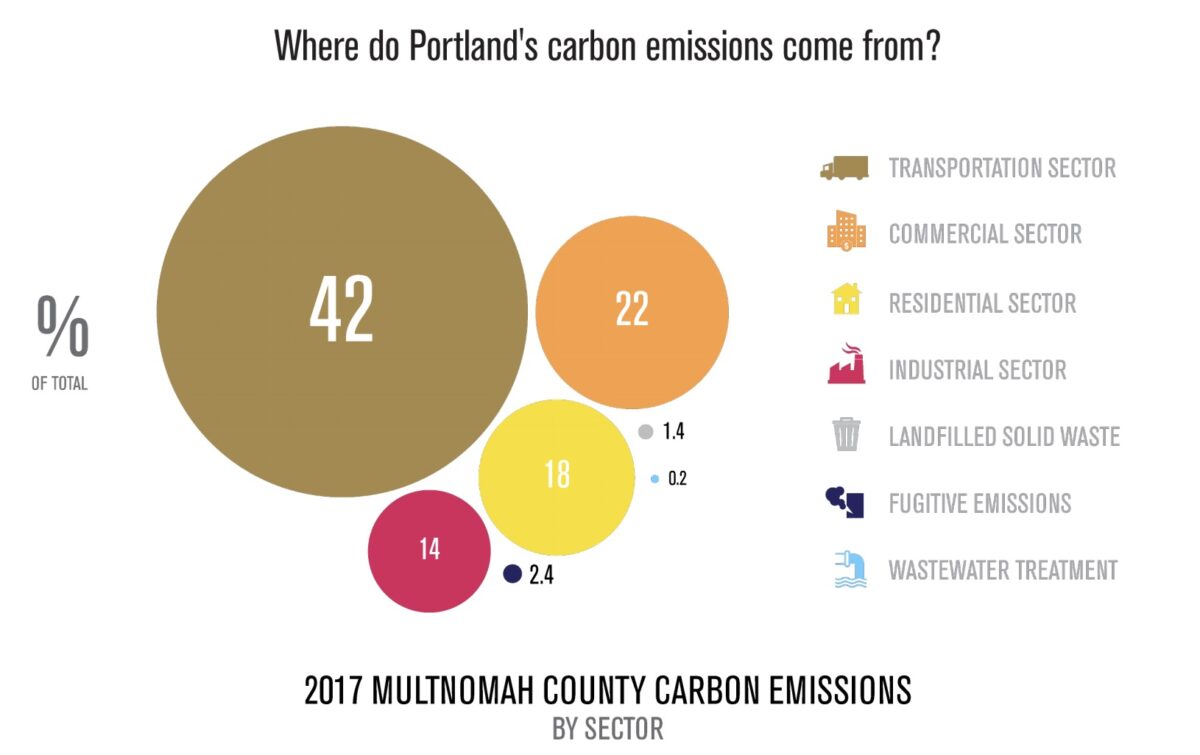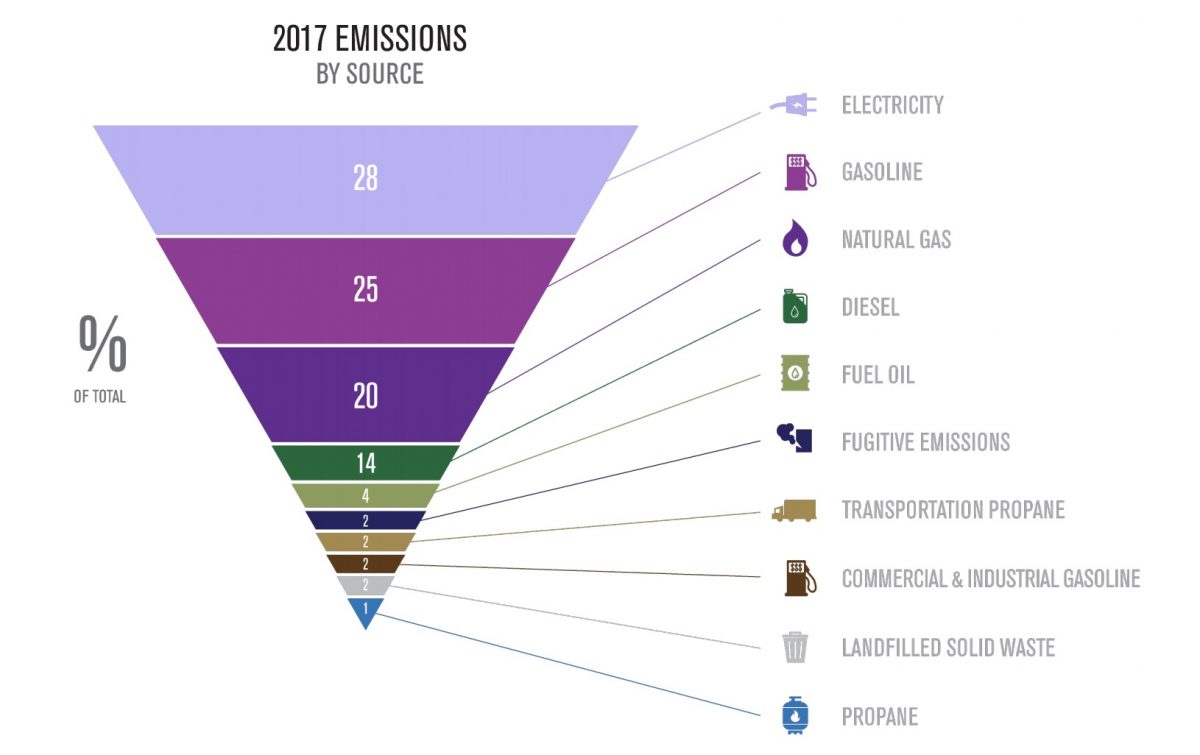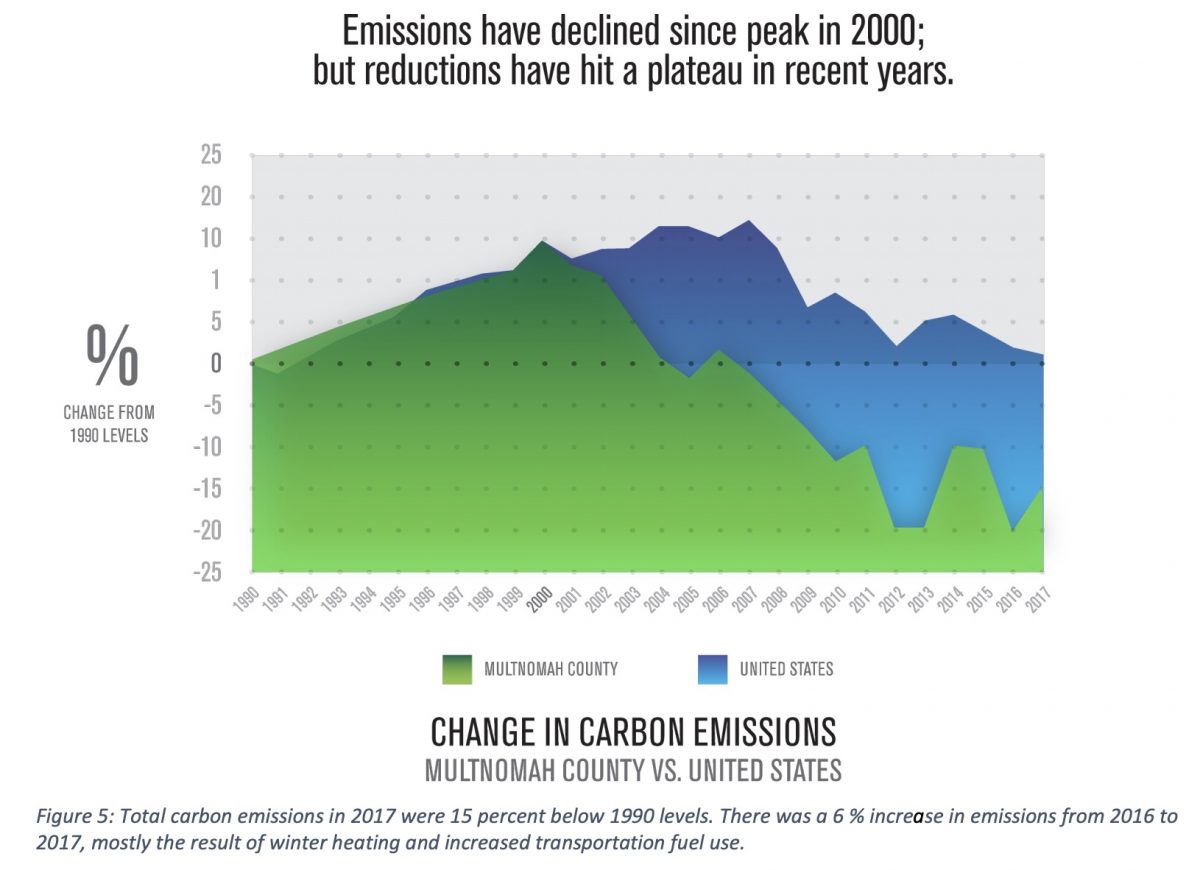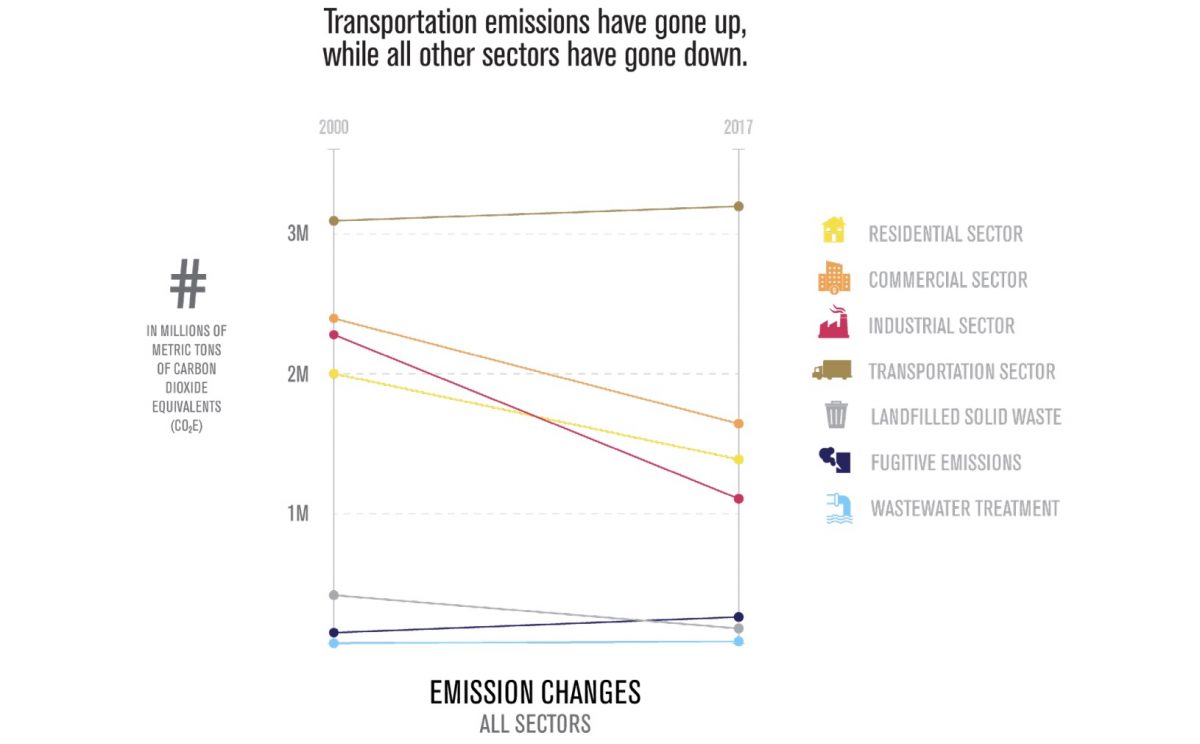
A 21-page white paper released today by the Portland Bureau of Planning and Sustainability says carbon emissions from the transportation sector are “increasing dramatically” and are currently 8% over 1990 levels.
“The increase… is largely the result of more people moving to Portland and driving vehicles on our roads.”
— from the report
The news about emissions from cars, trucks and other gas-powered vehicles is bad across the board. The 3,216,000 metric tons of CO2 they released into our air is 14% above their lowest levels in 2012 and have gone up year-over-year for the past five years, growing faster than population growth over the same period.
According to Multnomah County 2017 Carbon Emissions and Trends (PDF) the transportation sector accounts for 42% of local emissions. The report looked at sources and trends in Multnomah County from 1990 to 2017. Overall, our emissions are 38% below 1990 levels despite significant population and job growth. However, after emissions tumbled from their peak in 2000 to their lowest levels in 2012, the report found a plateau since then.
Advertisement




Other sectors analyzed, like residential and commercial buildings and factories, are still headed down. But the same can’t be said for transportation. Here’s an excerpt from the report’s “deep dive” into transportation emissions:
Transportation sector emissions come from use of transportation fuels (gasoline, diesel, propane, ethanol, biodiesel) and estimated vehicle miles travelled. These emissions are the result of driving vehicles powered by gasoline, diesel and propane, the transportation of goods, off road vehicles and equipment used for construction, and a transit system dominated by diesel buses. In recent years there have been more electric vehicles on the road, but because these vehicles are fueled with electricity – charged in people’s homes and businesses without metering – the emissions are allocated to the buildings sector.
Vehicle miles traveled in the county has remained relatively flat since 2010 and people buy less gas than they used to; but the report says the increase in transportation emissions, “is largely the result of more people moving to Portland and driving vehicles on our roads.”
The report’s language is refreshingly direct and serious. The first line reads, “We are in a climate crisis,” and goes on to explain that in order to reach the goals set out by the United Nations International Panel on Climate Change (IPCC), Portland must reduce local emissions by another 35% in the next 11 years. It’s “a daunting task,” the report reads, “Despite our successes, our emission reduction efforts clearly need to rapidly accelerate.”
This report comes out just two days before what’s expected to be a large-scale Climate Strike rally and demonstration set to begin at Portland City Hall on Friday.
Read the 21-page report here (PDF).
— Jonathan Maus: (503) 706-8804, @jonathan_maus on Twitter and jonathan@bikeportland.org
Never miss a story. Sign-up for the daily BP Headlines email.
BikePortland needs your support.

